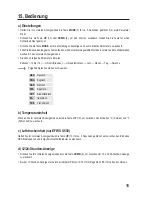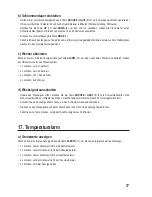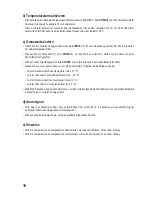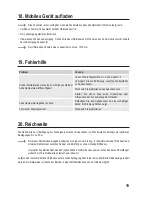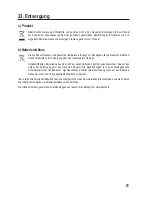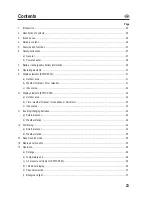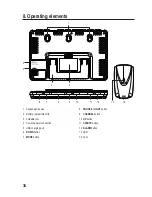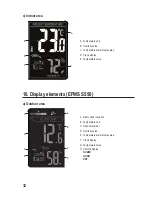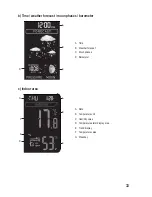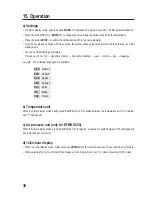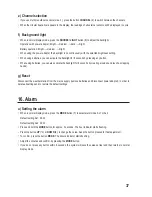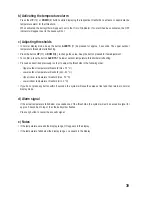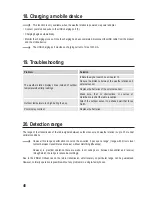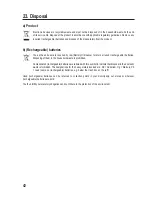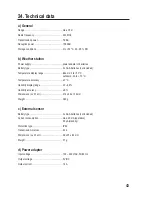
29
7. Battery / rechargeable battery information
• Keep (rechargeable) batteries out of the reach of children.
• Do not leave (rechargeable) batteries lying around. There is a risk that children or pets swallow (rechargeable)
batteries. If a (rechargeable) battery has been swallowed, seek medical attention immediately.
• Replace flat (rechargeable) batteries in time, since flat or outdated (rechargeable) batteries can leak.
• Leaking or damaged (rechargeable) batteries can cause burns when in contact with skin.
• Chemicals running out of (rechargeable) batteries are very aggressive. Objects or surfaces which can come into
contact with it can sometimes be extensively damaged. Therefore keep (rechargeable) batteries in a suitable place.
• Do not short-circuit and disassemble (rechargeable) batteries. Do not throw into fire. There is a risk of explosion!
• Never attempt to recharge non-rechargeable batteries. There is a risk of explosion!
• Never mix batteries with rechargeable batteries.
• Do not mix any (rechargeable) batteries in a different condition (e.g. full or half full (rechargeable) batteries).
• Always replace the whole set of (rechargeable) batteries.
Please note the correct polarity (plus/+ and Minus/-) when inserting the (rechargeable) batteries.
Operation of the weather station and/or the outdoor sensors is possible with rechargeable batteries.
However due to the lower voltage (battery = 1.5 V, rechargeable battery = 1.2 V) the operating time and the
display contrast decrease greatly.
Apart from this, rechargeable batteries are very sensitive to temperature, which leads to a further shortening
of the service life for the outdoor sensors at low environmental temperatures.
We therefore recommend using only high-quality alkaline batteries, both for the weather station as well as
for the outdoor sensors, and no rechargeable batteries.

